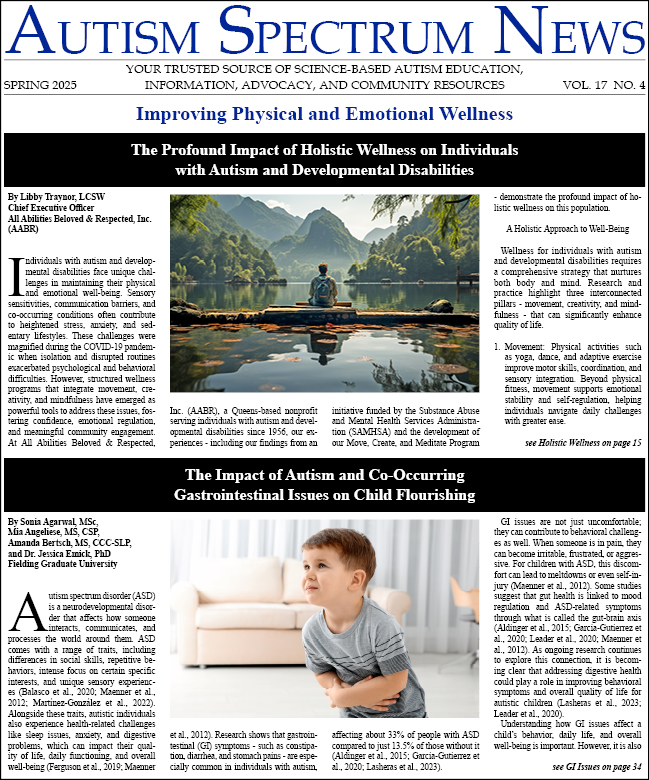-
Supporting Autistic Individuals in Driver Education: A Systematic Approach
Learning to drive is a significant milestone, symbolizing greater independence and autonomy. Driving independently offers freedom, builds confidence, and encourages self-reliance, empowering individuals to make their own decisions (Cheak-Zamora, Tait, & Coleman, 2022). Additionally, independent...
-
A Simple Guide to Wealth Building for Autistic Folks
I realize it might seem odd that a therapist is writing an article about money, but I’ll have you know finance has been one of my autistic special interests for over ten years. Over the years, I’ve read and listened to countless books and podcast episodes on finances. I would never preach one...
-
Navigating the Later Stages of Life with Autism and Aging
Something that we as a community have yet to fully turn our attention to is the question of “how do we help our autistic elders thrive and live in dignity as they age?” As a late-diagnosed autistic woman, I am a pretty good example of what growing up and growing old without any...
-
Navigating Sex as an Autistic Adult
It has long been thought that autistic adults desire sex at a lower rate than the general population, and recent research has shown this to be an incorrect assumption seeded with infantilization (Weir et al., 2021). Although autistic adults often need accommodations to be made regarding sensory...
-
Autistic Lived Experience: A Song Request at a High School Dance That Backfired
Had I known then what I know now, the DJ calling the shots at this dance would not have heard this request despite how much I loved the song in question. It comes down to the fact that context matters, as do the hidden rules of the social situations in which we find ourselves. These realities often...
-
Unspoken Injuries: Supporting Health Professionals Coping With Client Loss
“I was delighted to get my first consultant job working in an in-patient [psychiatric] unit… In my second week, I had my first patient die by suicide. In my third week, I had my second patient die by suicide. In my third month, there was a very distressing…death by suicide on the...
-
What I’d Like to See Change in the Disability World Over the Next 50 Years – Part 2: Know and Teach the REAL History
Occurring all across Western culture is a deep reckoning with the historical treatment of people of African descent. And assisting mightily in this process is the concept of unlearning. Without unlearning, we now know that we will continue to sanitize and apologize for our ancestors. Unlearning...
-
Supporting Autistic Service Providers Through Understanding, Inclusion, and Accommodation
When I opened my autistic-centered psychotherapy private practice in 2022, I never imagined that a significant portion of my clientele would comprise other autistic service providers. It makes sense now, upon reflection, since our field’s challenges are profound, and many of us are drawn to this...
-
Challenges for Autistic Adults in Navigating the Labyrinth of Healthcare
As I was fortunate enough to have had employment with good healthcare benefits, I did not have to face many of the challenges in navigating the healthcare system that autistics regularly encounter. Nevertheless, because of my involvement with the autism community over the past quarter century, not...
-
Autism Gets an Update: A National Autism Strategy for Canadians
Note: While there are many areas of inequity, this article will focus on diagnosis and support services as seen by the Autistic writer living in Ontario, Canada. Autism in Canada One in 66 Canadians is autistic. Collectively, we face numerous challenges to accessing services and supports,...




